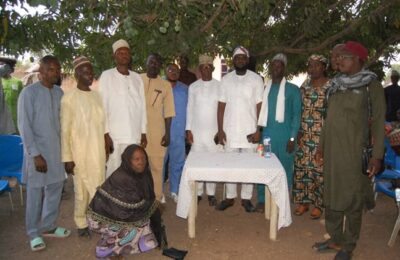Nigeria’s insecurity situation, particularly the attacks by herders on farmers, poses a significant threat to achieving Sustainable Development Goal 2 (SDG 2), which aims to end hunger and ensure access to safe, nutritious, and sufficient food for all. These attacks create fear among farmers, leading to reduced farming activities and food availability in certain parts of the country.
Assessing the Scenario
The herder-farmer conflicts in Nigeria have severe consequences on food security and the nation’s progress towards achieving SDG 2. Key issues include ¹:
- Reduced Agricultural Productivity: Attacks on farmers disrupt agricultural activities, leading to decreased crop yields and reduced income for farmers.
- Food Insecurity: The conflicts result in food scarcity, making it challenging for people to access nutritious food, particularly in rural areas.
- Loss of Livelihoods: Farmers and herders alike lose their livelihoods due to the conflicts, exacerbating poverty and hunger.
Action Plans to Curb the Menace
To address the herder-farmer conflicts and ensure progress towards SDG 2, consider the following action plans:
Short-Term Measures
- Establish Conflict Resolution Mechanisms: Set up community-based conflict resolution committees to mediate disputes between farmers and herders.
- Provide Security: Deploy security personnel to protect farmers and their farms, particularly during peak farming seasons.
- Emergency Food Aid: Provide emergency food assistance to affected communities to alleviate hunger and malnutrition.
Long-Term Strategies
- Sustainable Land Use: Implement sustainable land use practices, such as grazing reserves and ranching, to reduce competition for land between farmers and herders.
- Economic Empowerment: Provide economic empowerment programs for farmers and herders, including access to credit, training, and markets.
- Community Engagement: Engage with local communities to promote dialogue, understanding, and peaceful coexistence between farmers and herders.
- Agricultural Modernization: Invest in agricultural modernization, including irrigation systems, climate-resilient crops, and agricultural technology, to improve crop yields and reduce conflicts over resources.
Conclusion
The herder-farmer conflicts in Nigeria pose a significant threat to achieving SDG 2. Implementing short-term measures to address immediate needs and long-term strategies to promote sustainable land use, economic empowerment, and community engagement can help curb the menace and ensure progress towards a food-secure Nigeria.
– Benjamin Ibrahim, a retired Permanent Secretary, writes from Lokoja.




